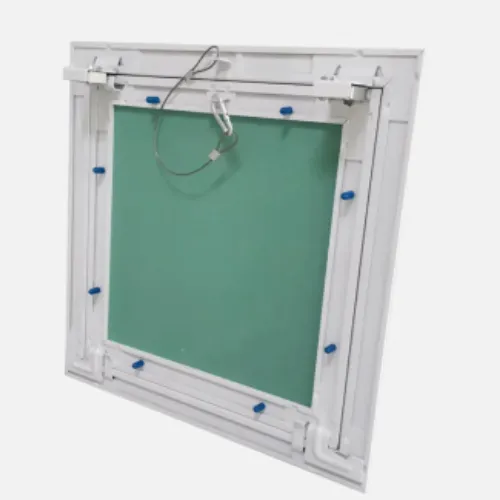Nov . 26, 2024 06:27 Back to list
mineral fiber ceiling board
Understanding Mineral Fiber Ceiling Boards Benefits, Applications, and Considerations
Mineral fiber ceiling boards have become a popular choice in both commercial and residential construction due to their numerous advantages. This article explores the characteristics, benefits, applications, and considerations associated with mineral fiber ceiling boards.
What are Mineral Fiber Ceiling Boards?
Mineral fiber ceiling boards are constructed from a blend of natural fibers and mineral-based materials, which are then processed to produce panels that can be used as ceiling tiles. The primary components typically include mineral wool, cellulose fibers, and sometimes the addition of glass fibers. These materials are known for their excellent sound absorption properties and fire-resistant qualities.
The production process involves creating a dense, lightweight panel that can be easily installed in a suspended ceiling system. The versatility in design means these panels come in various sizes, textures, and finishes, catering to different aesthetic preferences and architectural styles.
Benefits of Mineral Fiber Ceiling Boards
1. Sound Absorption One of the most significant advantages of mineral fiber ceiling boards is their acoustic performance. The porous nature of the material enables it to absorb sound waves effectively, reducing noise levels in occupied spaces. This makes them ideal for environments such as offices, schools, and hospitals where noise control is essential.
2. Fire Resistance Mineral fiber panels are inherently fire-resistant due to their mineral composition. They do not contribute to the spread of flames and can withstand high temperatures, making them a safer option for commercial buildings and public spaces.
3. Thermal Insulation The structure of mineral fiber ceiling boards also provides thermal insulation properties. They help maintain a comfortable indoor temperature by reducing heat transfer, thus potentially lowering energy costs related to heating and cooling.
4. Moisture Resistance Many mineral fiber ceiling boards are treated to be moisture-resistant, which helps prevent the growth of mold and mildew. This makes them suitable for high-humidity areas such as kitchens, bathrooms, and basements.
5. Lightweight and Ease of Installation Mineral fiber ceiling boards are lightweight, making them easier to handle and install compared to traditional materials like drywall or plaster. Their compatibility with suspended ceiling grid systems allows for quick installation and replacement.
6. Aesthetic Versatility Available in a variety of designs, colors, and textures, these boards can enhance the visual appeal of any space. Whether aiming for a sleek, modern look or a more traditional aesthetic, mineral fiber ceiling boards can fit seamlessly into diverse architectural designs.
mineral fiber ceiling board

Applications of Mineral Fiber Ceiling Boards
Mineral fiber ceiling boards are used in a wide range of applications, including
- Commercial Spaces Offices, conference rooms, and retail spaces benefit from the sound absorption and aesthetic flexibility of these panels, helping to create more productive environments. - Educational Institutions Classrooms and auditoriums often utilize mineral fiber ceilings to improve acoustics and comfort for students and staff.
- Healthcare Facilities Hospitals and clinics value the fire resistance and cleanliness of mineral fiber boards, which contribute to safer and healthier environments.
- Hospitality Hotels and restaurants use these ceiling boards not only for noise control but also to create elegant interiors that enhance the overall guest experience.
Considerations When Choosing Mineral Fiber Ceiling Boards
While mineral fiber ceiling boards offer many benefits, there are several considerations to keep in mind
1. Maintenance Depending on the finish, these panels may require periodic cleaning or maintenance to prevent staining or discoloration. Some finishes are more resistant to marks and dirt than others.
2. Environmental Impact Although many mineral fiber products are made from recycled materials, it’s essential to consider the environmental impact of the manufacturing process. Look for products with eco-friendly certifications.
3. Durability Mineral fiber boards can be susceptible to damage from impact or moisture if not properly treated. It's crucial to choose boards that are suitable for the specific application, particularly in high-traffic areas.
4. Installation While installation is straightforward, ensuring proper fit and alignment is vital to prevent sagging or misalignment over time. Professional installation may be advisable in complex settings.
In conclusion, mineral fiber ceiling boards present numerous benefits that make them an attractive choice for a variety of building applications. Their sound absorption, fire resistance, thermal insulation, and aesthetic flexibility contribute to enhanced comfort and safety in a range of environments. Whether for commercial, educational, or residential use, understanding these boards' advantages and considerations will allow builders and designers to make informed decisions that meet their needs and expectations.
-
Quality Ceiling Trap Doors & Access Panels | Easy & Secure AccessNewsAug.30,2025
-
Durable Ceiling T Grid Systems | Easy InstallationNewsAug.29,2025
-
PVC Gypsum Ceiling: Durable, Laminated Tiles for Modern SpacesNewsAug.28,2025
-
Pvc Gypsum Ceiling Is DurableNewsAug.21,2025
-
Mineral Fiber Board Is DurableNewsAug.21,2025
-
Ceiling Tile Clip Reusable DesignNewsAug.21,2025







